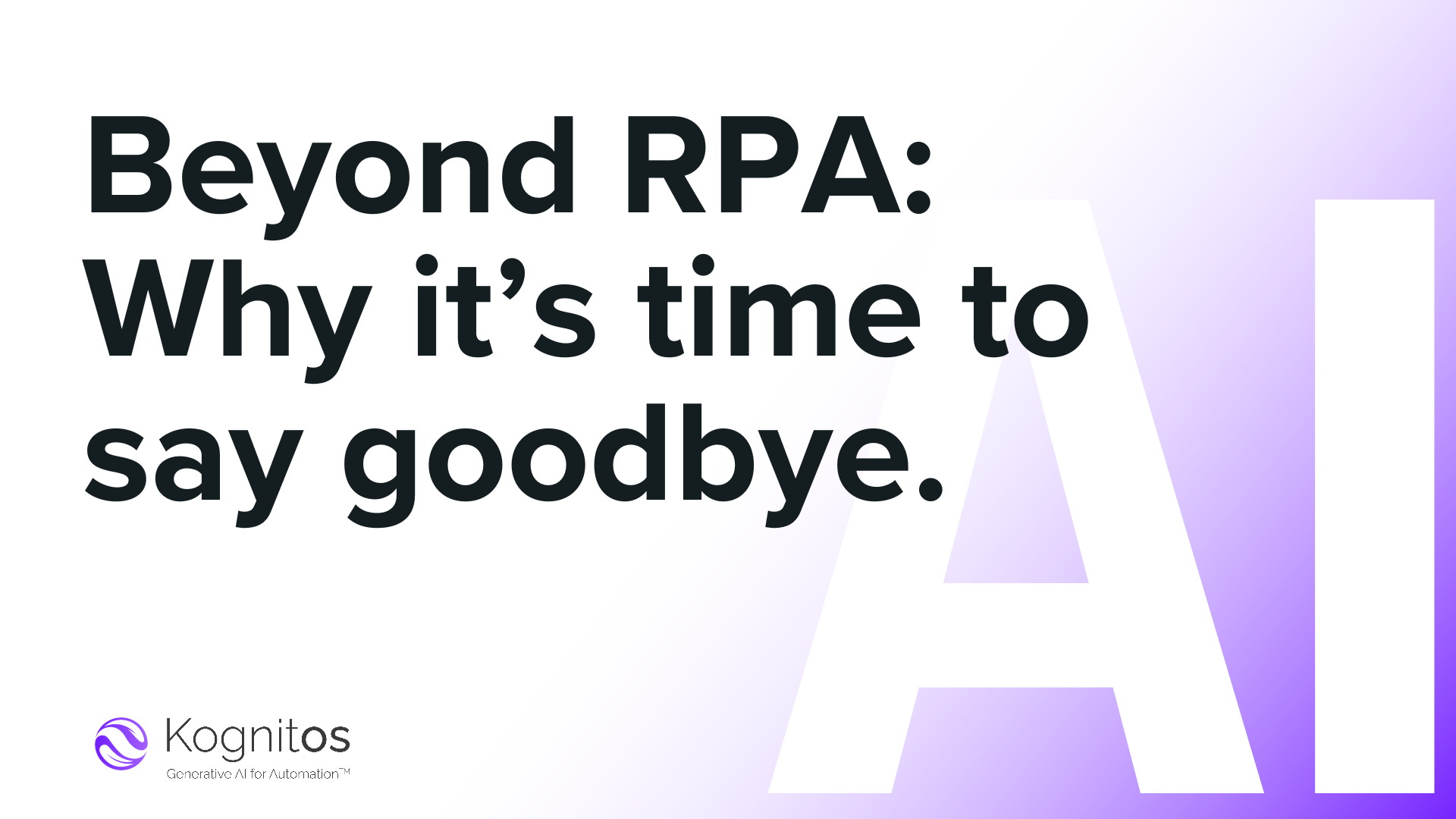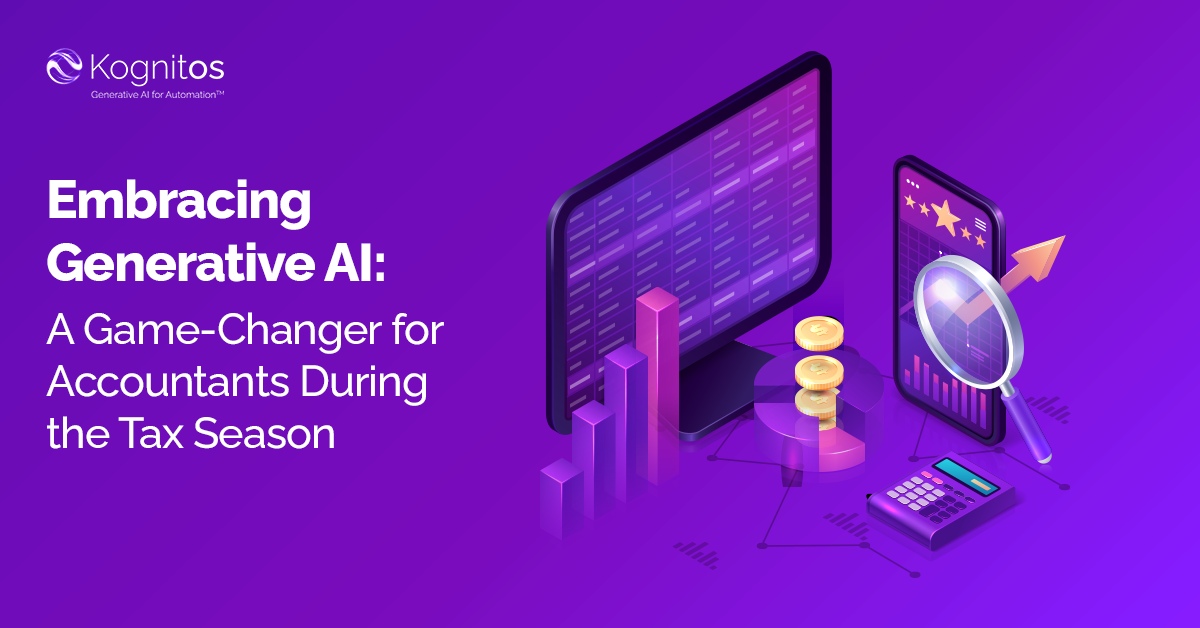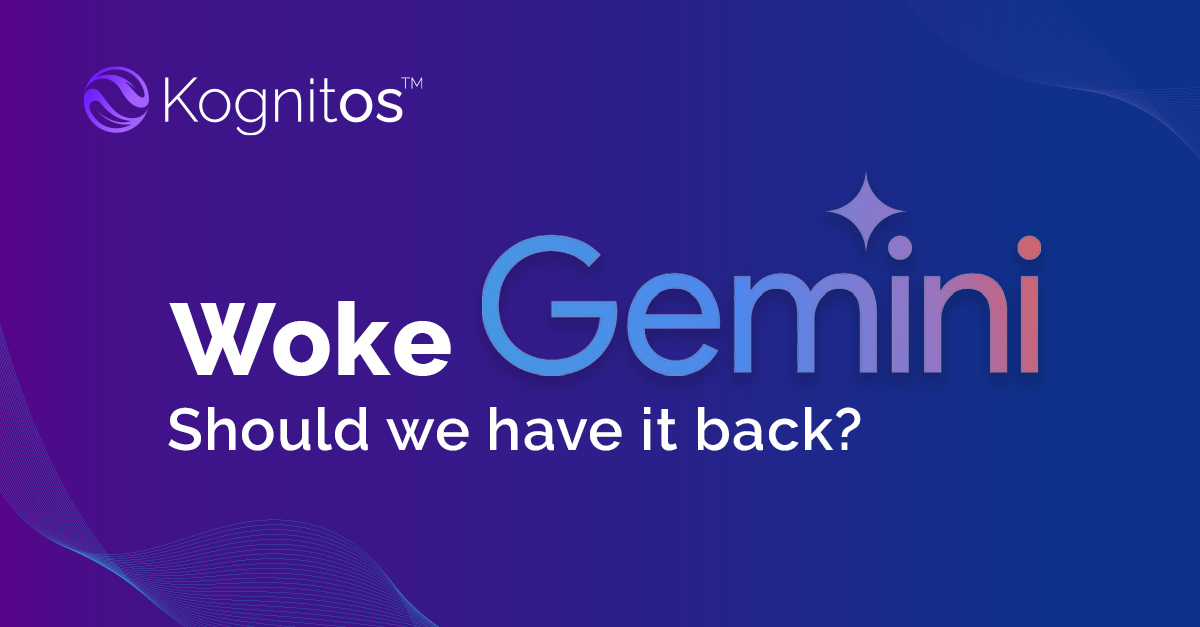It’s interesting to note that in the 21st century, when technology is classified as ‘dated’ in a couple of years, there’s one piece of tech that’s older than the first generation iPod, and yet continues to be fundamental to enterprise automation, two decades later: Robotic Process Automation!

Historically the most sought after automation tool for most enterprises, RPAs are slowly and steadily becoming irrelevant as businesses are moving towards automating complex, end-to-end processes from the simple, rules-based repetitive tasks they were used for.
It is evident that this is a result of the inherent limitations of RPA Solutions. This blog discusses, in depth, these limitations, and how modern tools and technologies like Generative AI can help you automate better.
Processing Unstructured Data
Unstructured Data, as the name suggests, refers to all information acquired via sources such as text-heavy documents, emails and media formats like images, videos, etc. Processing this unstructured data, however, is RPA’s Achilles Heel! As per a report from Gartner, about 80% of all organizational data is unstructured.
RPA’s reliance on rigid rules and templates does not allow it to read information from documents such as contracts and bills that do not conform to a set template. It is, therefore, not surprising that many of the limitations RPAs face are stemming from, in one way or the other, this inability to process unstructured data.
Increased Inefficiencies
RPAs depend on manual resources to process unstructured data. This leads to slower processes reducing the overall organizational agility, ultimately leading to increased inefficiencies.
Ballooning Costs
As per Forrester, conventional automation tools such as RPAs necessitate $5 in services for every $1 spent on the automation tools themselves. The expense balloons further in processes with many document variants or exceptions to business logic, leaving many RPA projects on the shelf. Most of the cost of maintaining traditional automations comes from the cost of handling exceptions.
Poor Scalability
As an organization grows, it needs to scale its automations keeping in mind its increasing size. However, as it grows, so does the volume of unstructured data. RPA’s inability to process this data thus becomes a major problem for these organizations when scaling.
Lack of Cognitive Skills
Another problem created by not being able to process unstructured data is the lack of cognitive skills. Unstructured Data contains very valuable insights that any business could leverage to improve their knowledge and make better business decisions. With RPAs, however, businesses miss out these insights and the opportunities attached with them.
Inability to Handle Exceptions
Another major problem associated with RPAs is the inability to handle exceptions. When an RPA encounters an unanticipated problem in its working, it throws an error that needs to be addressed by software developers and the likes. Yikes!
Time to say goodbye to Legacy Automation Solutions?
The question that arises then, is, if not RPA, then what? The answer to this, in simple words, is Intelligent Automation.
Intelligent Automation refers to the next generation of automation wherein technologies such as Generative AI are leveraged to address the shortcomings of legacy automation solutions. This empowers automation solutions to process both structured and unstructured data, allowing them to automate more complex tasks with minimal dependence on manual resources, such as IT/Tech Teams, etc.
These technologies democratize the power of automation to business users while maintaining IT governance and controls in place. Natural Language Processing Automation, for example, allows even non-technical employees to build, check and verify their automations, allowing businesses to significantly reduce their costs on the maintenance of their automation solutions, as was the case with RPAs.
Additionally, this unlocks hundreds of potentially crucial use cases such as Optical Character Recognition (OCR) and Intelligent Document Processing. But what just might be a gamechanger is Exception Handling: a major source of inconvenience for existing RPA users.
AI for IA?
The future, it seems, belongs to those who adapt with the times. And the times: they’re a-changin! AI is changing the way business is done across functions in companies in every industry. The ramifications are huge, and so are the opportunities. It is up to organizations to decide if they still want to go ahead with an outdated technology, or give automations an upgrade they deserve in today’s day and age.

Discover the Power of Kognitos
Our clients achieved:
- 75%manual data entry eliminated
- 30 hourssaved on invoicing per week
- 2 millionreceipts analyzed per year



